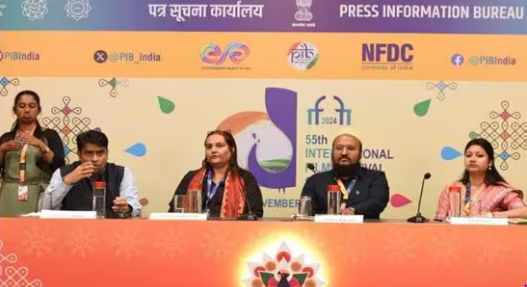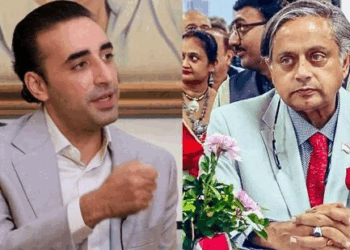The 55th International Film Festival of India (IFFI) took a significant step towards inclusivity by unveiling the “accessible films” section on Friday. The launch featured a special screening of an ‘accessible’ version of the film 12th Fail, which included audio descriptions for the visually impaired and sign language translation for the hearing impaired.
Enhancing Accessibility for All Audiences
For the first time, IFFI introduced 15 accessible films, offering an opportunity for people with disabilities to enjoy cinema in an inclusive setting. The screening was attended by around 50 children and young adults with disabilities, one of whom was 14-year-old Daksh, who shared his experience: “This was my first time in a theatre. The audio descriptions helped me understand each scene, even though I couldn’t see the screen,” he said, explaining the importance of accessible films for the visually impaired.
The film also featured an Indian Sign Language (ISL) expert, translating the dialogue for the hearing impaired, further enhancing the inclusivity of the event.
Government’s Commitment to Inclusivity in Entertainment
Prithul Kumar, Managing Director of the National Film Development Corporation (NFDC), emphasized the government’s dedication to promoting inclusivity in the entertainment industry. Speaking at the event, Kumar highlighted the motto of the 55th IFFI, Sabka Manoranjan (Entertainment for All), stating that inclusivity has become a major focus area for the Ministry of Information and Broadcasting. He thanked various partners for their support in making the festival more accessible to all.
Infrastructure Upgrades for Greater Accessibility
The NFDC has partnered with Svayam, an accessibility consultant specializing in sports, tourism, and cinema, to ensure the festival venues are fully accessible. Svayam’s recommendations led to infrastructure upgrades in Goa, enhancing accessibility for people with locomotor disabilities, as well as providing audio and visual cues for other disabilities.
Promoting Understanding Through the “Simulation Zone”
At the neighbouring Film Bazaar, Svayam set up a “simulation zone,” allowing attendees to experience the challenges faced by people with disabilities. Participants were given the opportunity to navigate obstacles using wheelchairs, wear vision-limiting goggles, or use crutches on uneven surfaces. The goal was to inspire a deeper understanding of accessibility and encourage more inclusive designs in public spaces.
Vandana Boolchand, head of Svayam, urged everyone to experience the simulation zone, stating, “We hope to raise awareness and promote empathy toward the challenges people with disabilities face. Creating accessible spaces should be a priority.”
Advocating for More Inclusive Entertainment
Alok Kejriwal, co-founder of India Singing Hands, who worked on the sign language translation for accessible films, stressed the importance of Indian Sign Language (ISL) in making films more inclusive. “For us who are hearing-impaired, ISL is our mother tongue. Films should be dubbed in ISL, just like they are in multiple languages,” he said through his sign language interpreter.
Madhavi Latha, President of Yes, We Too Can, a disability advocacy group, added, “People with limited mobility or disabilities, and their families, have significant spending power. They want to engage in activities like watching films, dining out, and attending cultural events—provided they can access these venues with comfort and dignity. Catering to accessibility needs is not only a matter of inclusivity, but also good business. It helps boost the GDP by ensuring that all people can participate in cultural and entertainment activities.”
A Step Towards a More Inclusive Future
The introduction of the accessible films section at IFFI marks a major milestone in the journey toward a more inclusive entertainment industry. By prioritizing accessibility, the festival is setting a precedent for future events, encouraging others in the industry to follow suit and make cinema truly accessible for everyone.








 India
India











